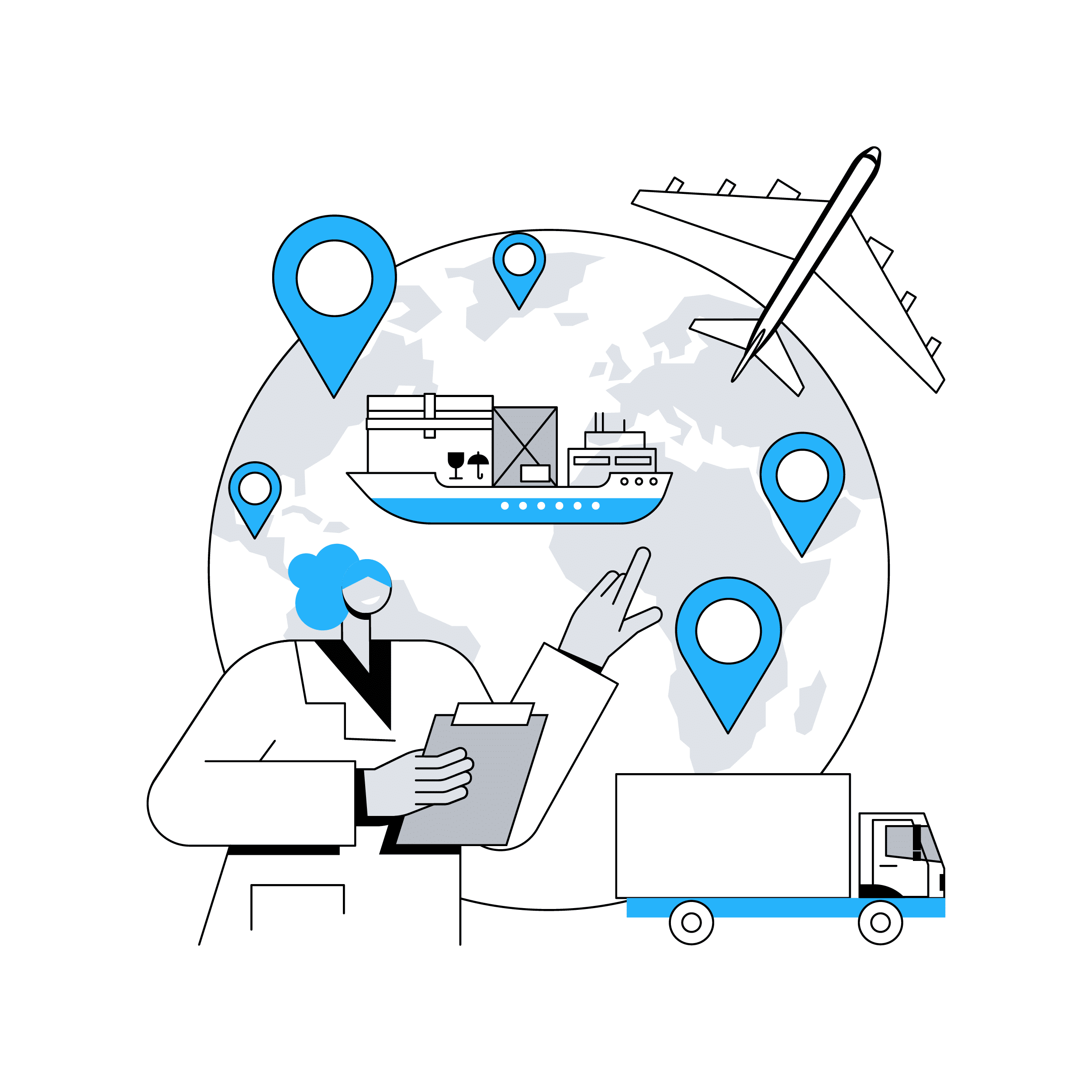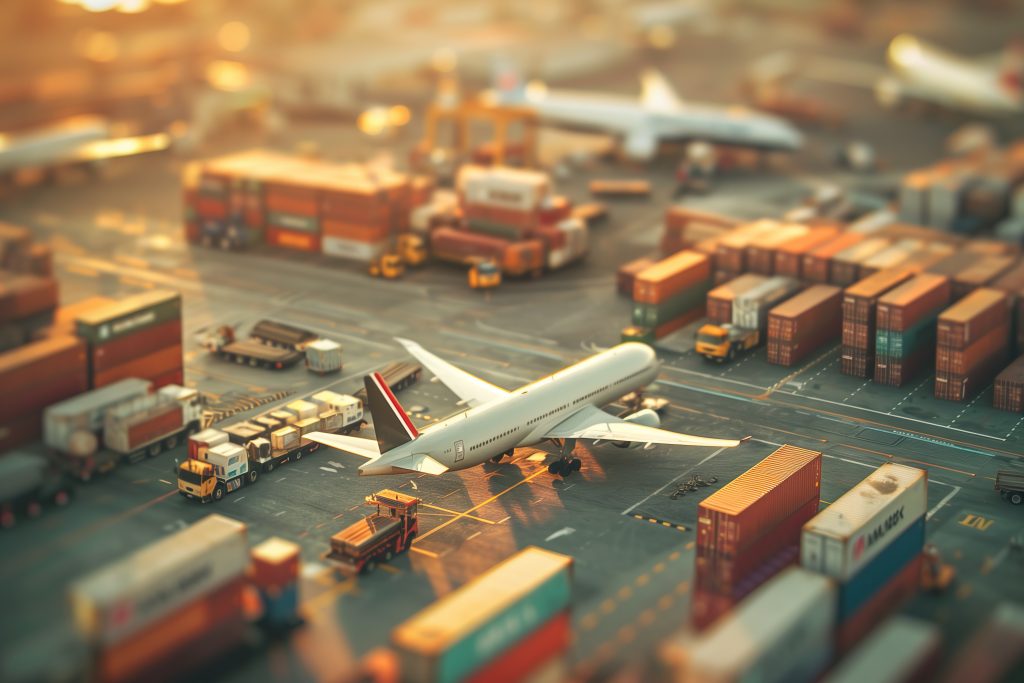Freight forwarders face numerous challenges in the global shipping process, including stringent customs compliance. This involves adhering to the trade regulations of both exporting and importing countries. Compliance requires understanding and following the laws and procedures set by national and international authorities governing trade.
As key players in international trade, freight forwarders, and customs brokers must navigate complex customs regulations to ensure goods enter their destination countries legally. This involves accurate documentation, correct goods measurement and labeling, paying appropriate duties and taxes, and providing necessary customs documentation.
In this article, we explore why customs compliance is crucial for freight forwarders and examine the challenges they face in meeting these requirements. Additionally, we’ll discuss how Be Informed’s ITTS can assist in achieving customs compliance. Continue reading to learn more!
Understanding customs compliance
Customs compliance is the act of adhering to the trade regulations of the countries to which you are exporting and importing. Being compliant includes understanding and adhering to the laws, regulations, and procedures put in place by the national government and multinational authorities to govern international trade. Meeting certain documentation requirements, making sure goods are correctly measured, labeled, and shipped, paying the correct duties and taxes, and providing appropriate customs documentation for entry into other countries are all part of the equation. Customs compliance also involves a thorough understanding of the regulations for each country in which goods are being shipped or imported.
Customs compliance is one of the cornerstones of international trade and freight forwarding. It ensures that goods are properly and law-accordingly imported, exported, and processed. By performing this regulatory function, customs compliance prevents illegal or unsafe goods from entering a country. The regulatory frameworks are also meant to promote fair trade practices and protect the interests of both the sending and receiving countries.
The biggest catch when it comes to customs compliance? Trade and customs regulations vary from country to country. Different countries often have different trade restrictions, varying laws and regulations that govern particular shipments, and different taxes and duties. Dealing with country-specific or regional variations in laws and regulations makes customs compliance a potentially complex endeavor for international freight forwarders. Staying compliant is crucial to prevent fines and reputation damage, as well as unfair trade practices.
The role of freight forwarders in the shipping process
As ‘architects of transport’ freight forwarders serve as important intermediates in the shipping process. As facilitators of global commerce, they take responsibility for many shipping-related steps in the logistics process on behalf of a client. This often includes order fulfillment, consolidating items, managing customs brokerage, handling documentation following shipping regulations, and more. Freight forwarders often provide customs brokerage services too, acting as authorized representatives of businesses during customs interactions.
Freight forwarders also build and maintain relationships between carriers, shippers, port officials, and other forwarders. In the grand scheme of things, freight forwarders are largely responsible for putting together ideal routes and a combination of providers to get goods from A to B as safely and cost-effectively as possible.

The challenges that freight forwarders face
Modern freight forwarders face many challenges in the field of customs compliance. The most important ones are:
- Freight forwarders face the intricate task of managing a multitude of regulations, encompassing global, national, and regional levels, with the added complexity of frequent changes. Keeping up with evolving trade agreements and rules is a continuous challenge.
- Some freight forwarders can only dedicate limited resources and personnel to customs compliance.
- In many companies, customs compliance involves error-prone manual processes (data entry, record-keeping, security screening).
- Freight forwarders have to deal with multiple parties throughout the supply chain. Tracking every step of the process and ensuring customs compliance can be a challenging task when you are dealing with complex supply chains and a wide variety of different companies and organizations.
- Not every customs authority interprets regulations in the same way. We often see varying degrees of enforcement, making it difficult for freight forwarders to predict potential compliance issues.
- Customs compliance involves a lot of paperwork, such as certificates of origin, packing lists, and commercial invoices. Other forms that may be needed include insurance certificates, permits and licenses, import/export declarations, and bills of lading.
The benefits of customs compliance
Customs compliance doesn’t only present challenges, but also has a lot of benefits for freight forwarders and their clients. First of all, having all the right documents at the right time and adhering to customs regulations reduces delays, leading to higher levels of customer satisfaction and fully functioning supply chains. Customs compliance also decreases the chance of getting hit by hefty fines, protecting you from considerable financial and reputational damage.
Being smart with custom compliance also significantly improves supply chain efficiency and enables freight forwarders to play their role as intermediaries between businesses and customs authorities properly. You can improve the speed and efficiency of border clearances, allowing you to maintain great stakeholder and end-consumer relationships.
Technology’s role in customs compliance
Modern technology, such as dedicated customs management software, can greatly aid freight forwarders in managing compliance. Smart automation is a particularly important game changer. It allows you to streamline documentation by eliminating many time-consuming, costly, and error-prone manual tasks.
Furthermore, automation allows you to analyze and compare hundreds to thousands of documents quickly and efficiently. The result? Fewer mistakes and an improved ability to recognize abnormal or suspicious behavior and violations of (inter)national customs laws or free trade agreements.
Be Informed’s International Trade and Transport Compliance Solution (ITTS) is a comprehensive software platform and powerful tool that effectively helps freight forwarders meet their customs compliance requirements. ITTS enables organizations to automatically check international trade and transport transactions for potential compliance issues. It also supports staff in resolving problematic transactions while automatically building an audit trail to evidence compliance with regulators. The solution can define organization policies and clarify critical international travel and international transaction elements (who, what, where, and why) for compliance.








